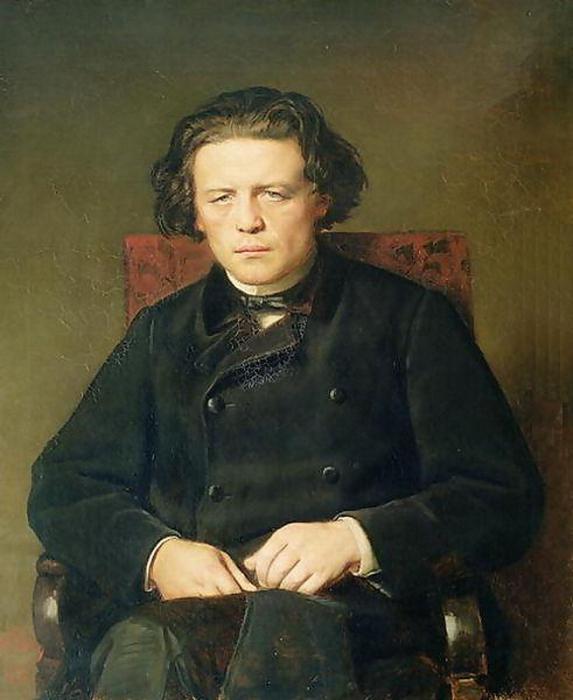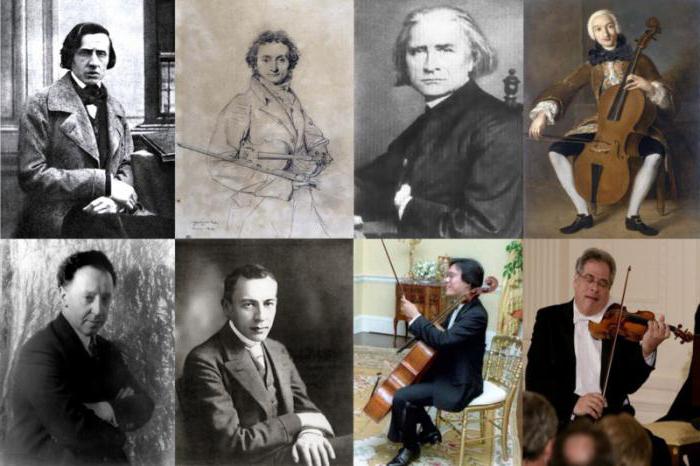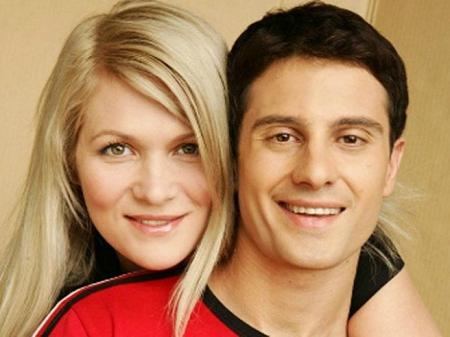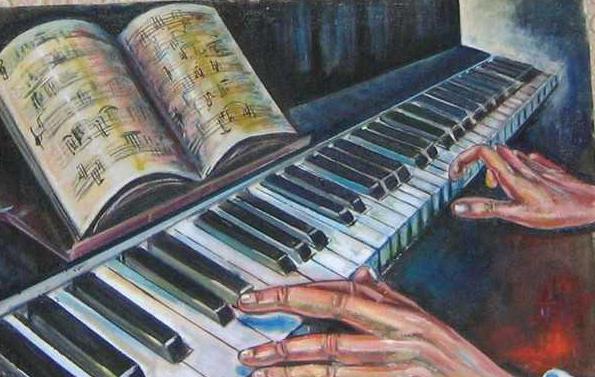Composer Anton Rubinstein and his works
A significant contribution to the development of musicalCulture of Russia introduced Anton Rubinstein. Works such as the etude of Undine, the opera Christos, Dmitri Donskoi, Demon, the symphonic poems Faust, Ivan the Terrible and many others brought him world-wide recognition. It is he who is considered the pioneer in the development of pianism. Many of the compositions in his performance have a tremendous success even in our time.
History of Childhood
World-famous author, conductor and teachermusic was Anton Grigorievich Rubinstein. Biography of it began on November 16, 1829 in the village Vykhvatinets Podolsk province (Pridnestrovskaia Moldavskaia Respublika) in a well-to-do Jewish family. His father, Grigory Romanovich, was a trader in several generations. Mom, Karelia Khristoforovna, was a musician. Also, the great musician had two younger sisters and a brother. When Anton was about three years old, his family moved to Moscow.

The beginning of creative activity
With the original origins of musical artthe hero of our narration was introduced by my mother. At the age of seven, Anton Rubinstein took lessons from the famous composer A.I. Villuana, thanks to which he received professional skills in playing the piano. The first performance at the age of ten opened the way to fame. Immediately after a successful performance, he goes, accompanied by his mentor with a concert tour of Europe.
A few years later the Rubinstein family movedto Berlin. There he continues to study music, but now his teacher is the famous Siegfried Den. It is here that the young musician gets acquainted with the outstanding Felix Mendelssohn and Giacomo Meyerbeer.
When Anton was seventeen years old, after his deathfather, his mother and younger brother return to Moscow, and Rubinstein goes to live in Vienna. In order to somehow live, he gives individual music lessons for children from rich families.
Three years after the move, he again comesin Russia. Settled in St. Petersburg, Anton Rubinstein is conducting. In addition, he gives private concerts at the royal court, which have tremendous success. Also at this time his creative activity is intertwined with well-known composers and cellists, such as M.I. Glinka, A.S. Dargomyzhsky, M.Yu. Vielgorsky, K.B. Schubert.

Works
In 1850 there was a concert performance, wherethe hero of our story makes his debut as a conductor. And two years later he wrote one of the biggest operas - "Dmitry Donskoy." Soon after the first experiment, as a composer, Rubinstein Anton creates three one-act works: "Revenge", "Siberian Hunters" and "Fomka the Fool." Also at this time he makes the first unsuccessful steps to create a musical institution in St. Petersburg.
In 1854, Rubinstein decides to move toGerman town of Weimar, there is an acquaintance with F. Liszt, who helps him in staging the opera. In the winter of 1854, the composer performs with a concert in Gewandhaus, which ends in great triumph. After this success, he goes on a regular concert tour of major cities, such as Vienna, Munich, Hamburg, Nice.
Homecoming
A few years later, upon arrival in Russia, AntonRubinstein directs all his efforts to the opening of the Russian Musical Society. It is here, performing works, he acts as the conductor of the orchestra. In addition, the composer does not stop his tour activities abroad. After the opening of the classes, the Society was reorganized into the First Russian Conservatory. The famous pianist Rubinstein was not just one of its first leaders, but also a conductor of the orchestra and choir, a professor of pianoforte and arrangements.

In 1867, due to disagreements related to the role of the open music school, which arose with no less famous music figures of that time, he resigned as director.
Great work
A few years later, Anton Rubinstein wrotethe greatest work is "Demon." It was his censors who were not allowed to pass for another four years. Meanwhile, the composer is the head of the concerts of the Society of Friends of Music in Vienna.
In 1873, he went on tourin America together with Henryk Wieniawski (violinist). Returning after a year to Peterhof, the composer wrote the Fourth and Fifth Symphonies for the music of the Maccabees and the Kalashnikov Merchant.
In 1885-1886 a number of significanthistorical concerts in the cities of central Europe, where almost all solo works for the piano were performed. A year later Rubinstein was again appointed to a leading position in the conservatory.
November 8, 1894, while in Peterhof, Anton Grigorievich Rubinstein died. He is buried in the Necropolis, in the cemetery of masters of the arts.

Success
Undoubtedly, a huge contribution to the creation of the firstmusic school in Russia introduced Anton Rubinstein. The biography of this outstanding man shows that he was an ideological fighter for the cultural enlightenment of the people all his life. Therefore, he is also considered the ancestor of musical education. His disciples were such famous people as P.I. Tchaikovsky, I. Gofman, G.A. Laroche.
Virtually all musical genres cover the creative heritage of Anton Rubinstein. Masterpieces written by him, became vivid examples of Russian lyric opera.
So, in his entire life he wrote a greatnumber of works, including 15 operas, 6 symphonies, 5 oratorios and concerts for piano and orchestra, more than 120 songs and songs, over 200 compositions for pianos.
His samples were also successful as an authorSome books, such as "Autobiographical Stories," "Music and its Representatives," "The Box of Thoughts." In them the author openly described his views on the life, musical and creative activity of many famous composers of the past and modern times.
Thus, we can say with certainty thatAn invaluable contribution to the musical culture was made by Anton Rubinstein. The biography of this great man shows that he opened his way to create great creations.

For his professional activities, he was awarded the Order of Merit in the field of art and science.
</ p>







